
Keep this to yourself but I am, quite literally, sleeping on the job. I'm sitting on my desk chair and should be writing this article that you're reading, but my eyes are closed and my forearms are relaxed on the arm rests, palms facing up. There's an apple in my left hand (I'll explain why in a second).
It's a peculiar scene, I'll grant you, but not one of abject laziness, whatever my wife tells you. I'm napping in the name of science, art and productivity. Some of history's greatest thinkers swore by the idea of a power nap, and scientific literature is beginning to suggest they were right to.
In recent years, researchers have found that a short doze can improve everything from memory and creativity to cardiovascular health and immune function. Napping is a superpower, it would seem, capable of restoring body and mind. Some have even described it as a public health intervention waiting to happen - not least because we're all so very tired.
As we know, adults need seven to nine hours of sleep a night. And as we also know, we're not getting it. Screen time, stress, caffeine habits and shift work are all to blame, but according to a YouGov poll earlier this year, one in eight Brits gets less than six hours of shuteye a night and a quarter of us use sleeping pills. Plus, if you believe marketing surveys from mattress companies, we build up more than 30 hours of sleep debt a month.
In turn, the British economy loses £30bn a year because of sleep loss. More importantly, chronic sleep disorders can increase a person's risk of high blood pressure and heart problems, as well as immune system dysfunction and obesity. No wonder sleep has become an obsession, something we track, hack and optimise.
Esta historia es de la edición August 2022 de BBC Science Focus.
Comience su prueba gratuita de Magzter GOLD de 7 días para acceder a miles de historias premium seleccionadas y a más de 9,000 revistas y periódicos.
Ya eres suscriptor ? Conectar
Esta historia es de la edición August 2022 de BBC Science Focus.
Comience su prueba gratuita de Magzter GOLD de 7 días para acceder a miles de historias premium seleccionadas y a más de 9,000 revistas y periódicos.
Ya eres suscriptor? Conectar
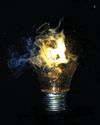
THE WORST IDEAS OF THE 21ST CENTURY
NOT ALL IDEAS CAN BE HITS. ALONGSIDE GROUND-BREAKING INNOVATIONS, 21ST-CENTURY SCIENTISTS HAVE HELMED THEIR SHARE OF WILD TECH FLOPS, DUBIOUS THEORIES AND OVERHYPED BREAKTHROUGHS. HERE ARE THE BIGGEST TO FORGET

10 IDEAS THAT WILL SHAPE YOUR NEXT 25 YEARS
Predicting the future is considered a fool's game. But it's one many of us like to play.
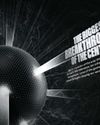
THE BIGGEST BREAKTHROUGHS OF THE CENTURY
We're a quarter of the way into the new century. To mark this milestone, we asked the UK's top minds to highlight some of the game-changing scientific breakthroughs shaping our world since the year 2000
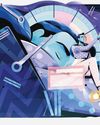
DO THE SCIENCE COGNITIVE SHUFFLE
Trouble sleeping? A lot on your mind? Use this trick and sedate your synapses
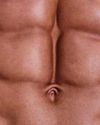
WHAT DETERMINES HOW MANY ABS I CAN GET?
Assuming you're a human being, you have exactly the same number of abs as everybody else: two.
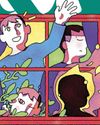
HOW CAN I IDENTIFY MY PSYCHOLOGICAL BLIND SPOT?
In the 1950s two American psychologists, Joseph Luft and Harrington Ingham, proposed a way of thinking about psychological blind spots - things you don't know about yourself - that they called the 'Johari Window' (the term is a combination of their first names).

How can I change my personality?
Want to become more confident, extroverted or assertive? Science shows that with a few simple changes, you can unlock your best self

Could your cosmetics be harming your health?
Cosmetic companies are phasing out microplastics and so-called 'forever chemicals' to help protect consumers.

extraterrestrial US Congress is talking about activity again. Is the truth really out there?
Despite several testimonies, the question remains frustratingly unanswered

Map of 100 million human body cells revealed
Over three dozen new studies mark significant milestone towards complete Human Cell Atlas
